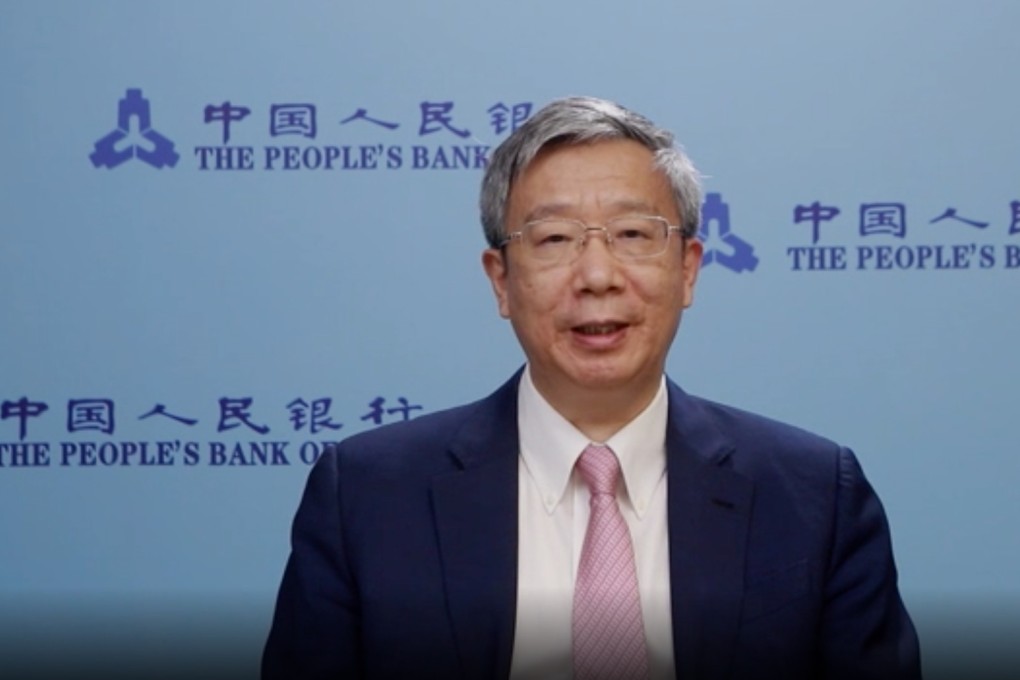Advertisement
China’s central banker Yi Gang to headline speeches by regulators at Hong Kong’s financial summit
- The PBOC’s chief Yi Gang will be joined by CBIRC vice-chairman Xiao Yuanqi and CSRC vice-chairman Fang Xinghai in giving recorded speeches at the financial summit
- The three-day event also includes Financial Secretary Paul Chan, HKMA CEO Eddie Yue Wai-man and top officers of global banks and funds
Reading Time:4 minutes
Why you can trust SCMP
7

China’s top regulators will participate virtually in the Global Financial Leaders’ Investment Summit, according to a programme list seen by the South China Morning Post, echoing President Xi Jinping’s recent promise of “full support for Hong Kong to develop its economy”.
Yi Gang, the governor of the People’s Bank of China (PBOC), Xiao Yuanqi, vice-chairman of the China Banking and Insurance Regulatory Commission (CBIRC), and Fang Xinghai, vice-chairman of the China Securities Regulatory Commission (CSRC), will deliver speeches via video during the “China Policy Session” on Wednesday morning.
Chief Executive John Lee Ka-chiu will deliver the keynote address to open the second day of the three-day summit. Wednesday is the first day open to the public.
Advertisement
The participation of the Chinese regulators comes after President Xi pledged support for greater integration of Hong Kong and Macau into national development plans last month during the twice-a-decade Communist Party conference.
Xi underscored the critical role of Hong Kong as he mapped out China’s direction over the next five years and beyond, and guaranteed full support for Hong Kong to develop its economy, improve people’s livelihoods and resolve “deep-seated conflicts” in its economic and social development.
Advertisement
Advertisement
Select Voice
Choose your listening speed
Get through articles 2x faster
1.25x
250 WPM
Slow
Average
Fast
1.25x
